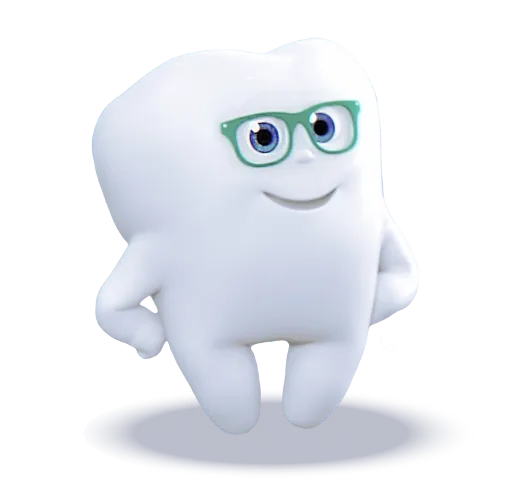Physicians Mutual Insurance Company®
- Dental Care Help Center
- 4 ways age can affect your oral health
4 ways age can affect your oral health
And what you can do to help protect your pearly whites.
With age comes wisdom, resilience … and yes, wear and tear on your teeth. But that doesn’t mean you have to resign yourself to a mouthful of problems as you age. These tips, along with regular dental checkups and cleanings, can help you keep your teeth healthy and your smile bright.
Age-related dental changes
What you can do
Tooth wear1
It happens to all of us — after a lifetime of chewing, biting and grinding, teeth wear down. Having a poor bite can also hasten the process.
- Avoid chewing ice and hard foods.
- If you grind your teeth while sleeping, wear a night guard.
Dental erosion2
Over the years, sodas, sports drinks, acidic fruits and juices can erode tooth enamel … the hard, protective outer coating of your teeth. With enough erosion, your tooth’s dentin (the inner layer) can become exposed, leading to tooth sensitivity and cosmetic issues.
- Drink acidic beverages through a straw to limit direct contact with your teeth.
- If you can tolerate dairy, follow acidic foods and beverages up with milk or cheese to neutralize the acid.
- Wait at least an hour before you brush your teeth after eating or drinking something acidic.
Gum problems2
If left unchecked, a buildup of plaque on your teeth can lead to gum disease, or periodontitis. Common signs of gum disease include bleeding when you brush, receding gums, red or swollen gums, bad breath and loose teeth.
- Brush twice a day with a soft-bristle brush and fluoride toothpaste.
- Floss once a day.
- If you smoke, quit.
- Call your dentist if you notice symptoms.
Dry mouth3
Our mouths get drier as we age, increasing the chances of tooth decay. Certain medicines and health conditions like diabetes and Sjögren’s syndrome can also cause dry mouth.
- Drink more water, and swish it around your mouth for a few seconds.
- Suck on sugarless candy or chew sugarless gum.
- If you take medications, talk with your doctor.
Age-related dental changes
Tooth wear1
It happens to all of us — after a lifetime of chewing, biting and grinding, teeth wear down. Having a poor bite can also hasten the process.
What you can do
- Avoid chewing ice and hard foods.
- If you grind your teeth while sleeping, wear a night guard.
Dental erosion2
Over the years, sodas, sports drinks, acidic fruits and juices can erode tooth enamel … the hard, protective outer coating of your teeth. With enough erosion, your tooth’s dentin (the inner layer) can become exposed, leading to tooth sensitivity and cosmetic issues.
What you can do
- Drink acidic beverages through a straw to limit direct contact with your teeth.
- If you can tolerate dairy, follow acidic foods and beverages up with milk or cheese to neutralize the acid.
- Wait at least an hour before you brush your teeth after eating or drinking something acidic.
Gum problems2
If left unchecked, a buildup of plaque on your teeth can lead to gum disease, or periodontitis. Common signs of gum disease include bleeding when you brush, receding gums, red or swollen gums, bad breath and loose teeth.
What you can do
- Brush twice a day with a soft-bristle brush and fluoride toothpaste.
- Floss once a day.
- If you smoke, quit.
- Call your dentist if you notice symptoms.
Dry mouth3
Our mouths get drier as we age, increasing the chances of tooth decay. Certain medicines and health conditions like diabetes and Sjögren’s syndrome can also cause dry mouth.
What you can do
- Drink more water, and swish it around your mouth for a few seconds.
- Suck on sugarless candy or chew sugarless gum.
- If you take medications, talk with your doctor.
- “How Teeth Change With Age,” written by WebMD Editorial Contributors, medically reviewed by Alfred D. Wyatt Jr., DMD, webmd.com, March 6, 2024, accessed July 8, 2024
- “Tooth Erosion,” Cleveland Clinic, my.clevelandclinic.org, last reviewed on September 14, 2023, accessed August 12, 2024
- “Aging changes in teeth and gums,” updated by: David C. Dugdale, III, MD, Professor of Medicine, Division of General Medicine, Department of Medicine, University of Washington School of Medicine. Also reviewed by David Zieve, MD, MHA, Medical Director, Brenda Conaway, Editorial Director, and the A.D.A.M. Editorial team. National Institutes of Health / National Library of Medicine, MedlinePlus, medlineplus.gov, review date April 17, 2022, accessed July 8, 2024
Help arm your teeth against the effects of aging!
Discover coverage options designed for changing dental needs. Explore plans with no annual maximum, no deductibles and guaranteed acceptance for those 18 and over.
Learn More

